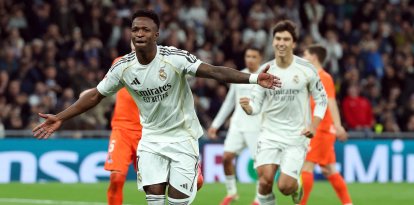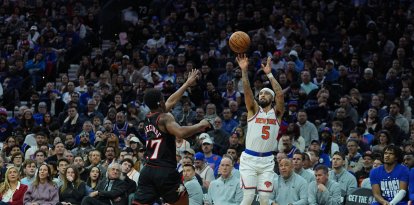The World Anti-Doping Agency accuses the US of hiding positive cases and allowing violating athletes to compete between 2011 and 2014
At least three athletes, all now retired, benefited from this controversial tactic, which has sparked a major controversy.

World Anti-Doping Agency (WADA) president Witold Banka (left).
The World Anti-Doping Agency (WADA) said in a statement that the United States Anti-Doping Agency (USADA) broke the global code by allowing several athletes who violated anti-doping laws between 2011 and 2014 to be covered up and allowed to continue to compete without prosecution in exchange for information on other violators.
In a statement sent to Reuters, the world agency declared:
"WADA is now aware of at least three cases where athletes who had committed serious anti-doping rule violations were allowed to continue to compete for years while they acted as undercover agents for USADA, without it notifying WADA and without there being any provision allowing such a practice under the (global) code or USADA's own rules."
USADA defended itself, however, asserting that the tactic is permitted and necessary to investigate other athletes and defuse larger doping schemes or even human and drug trafficking plots in collaboration with U.S. authorities.
Our statement on Reuters exposing USADA contravention of the World Anti-Doping Code: https://t.co/WobCj4KWDf
— WADA (@wada_ama) August 7, 2024
But WADA argues that the situation goes against its code and that athletes caught violating anti-doping rules should be publicly sanctioned and prosecuted before participating in disciplines with the possibility of winning prize money and medals.
This situation leaves confrontational and increases tension between two of the most important anti-doping agencies worldwide, which are, in fact, immersed in a dispute over the global system of doping control in sport, triggered by the case of 23 Chinese swimmers that has generated commotion at the Paris 2024 Olympics, Reuters reported.
According to WADA, USADA applied this tactic with three different athletes who are now retired. However, it did not provide names citing security concerns and worries over retaliation.

Sports
Paris 2024: Curry shines against Serbia and Team USA advances to play for gold against France
Emmanuel Alejandro Rondón
Travis Tygart, USADA's executive director, said of the tactic "it's an effective way to get at these bigger, systemic problems" and that the agency wants to continue using the tool.
"If you've got agents or others who are preying on athletes and trafficking … I think it's totally appropriate," he said.
Under the World Anti-Doping Code, to which USADA subscribes, an athlete who violated anti-doping rules who "substantially" cooperates in such an investigation may request that a portion of the sanction imposed on him or her following the process be suspended. However, the wording is ambiguous and the U.S. agency's interpretation is called into question.
In fact, WADA stated that the interpretation that the code "can be used to justify a failure to prosecute a case for years while doped athletes are sent back into the field as undercover informants to compete against clean athletes is obviously wrong."
For this reason, USADA, while saying it wants to continue using the tactic, said it will only implement it from now on under explicit authorization from WADA, something that seems a distant possibility.

























